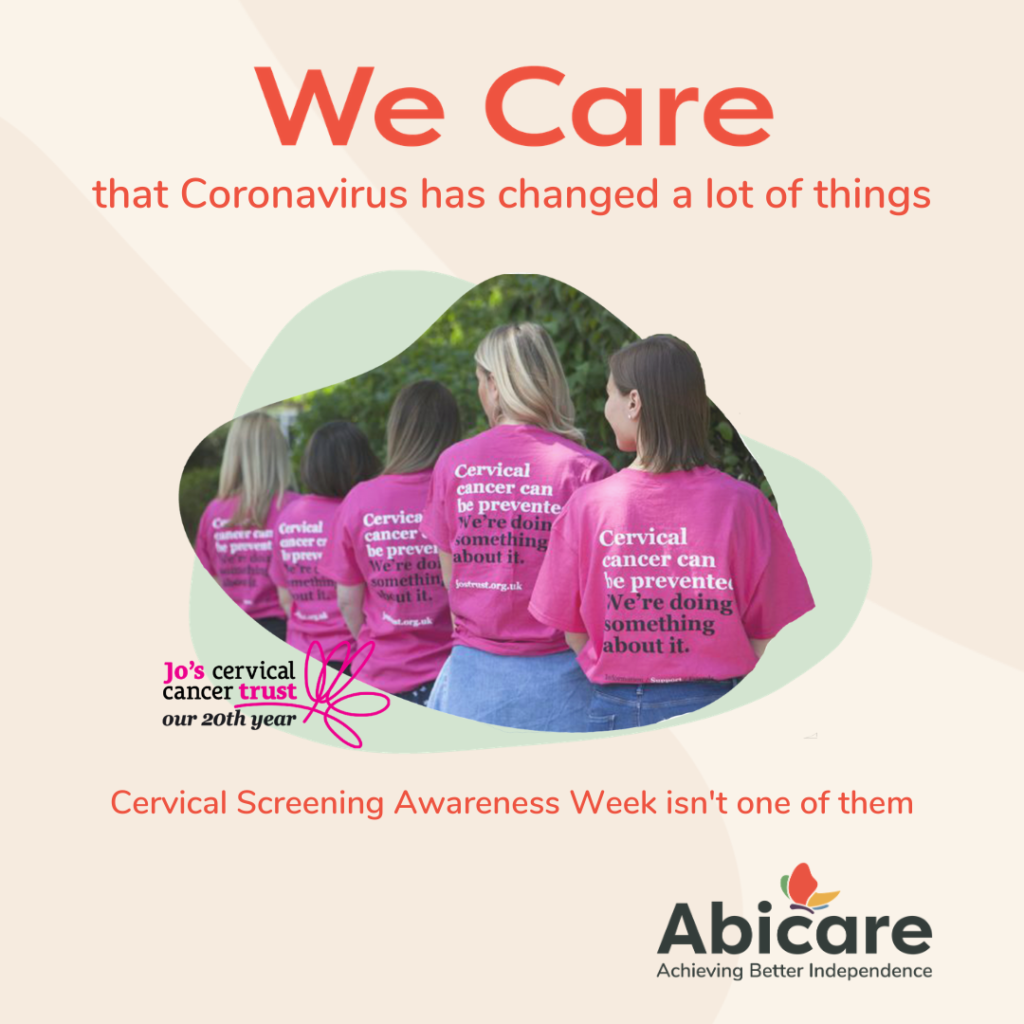Cervical Screening Awareness Week 2020

Today marks the start of Cervical Screening Week, an annual event which is organised by Jo’s Cervical Cancer Trust, the UK’s leading cervical cancer charity.
Cervical Screening Week aims to highlight the importance of regular cervical screening (also known as a smear test) to ensure that any potential abnormalities are detected quickly, and therefore help save the lives of many women.
The Trust was founded after the death of Jo Maxwell by her husband James. Jo died from cervical cancer at the age of 40- following her diagnosis in 1995, Jo had difficulty finding useful information about every aspect of cervical cancer, and it was her wish that women affected by cervical cancer would have the opportunity to communicate with others facing similar challenges.
Over the past twenty years Jo’s Cervical Cancer Trust and its supporters have worked tirelessly to raise awareness of cervical cancer, its causes and how to prevent it. From its impact on the launch of the HPV vaccination programme to its education on screening, treatment and survivorship issues, Jo’s Cervical Cancer Trust has continued to increase its reach and during that time, they have helped support thousands of people.
Cervical cancer is the most common form of cancer in women under 35 with two women in the UK per day dying from the disease. Regular cervical screening appointments can prevent up to 75% of instances of cervical cancer, saving 5000 lives per year. Despite this, many women are reluctant to have this test done with a quarter of women not responding to their screening invitation.
It is completely understandable to feel anxious about having a smear test, but the following link breaks down exactly what happens during the screening, and reiterates that it’s important to let the nurse know if you’re feeling anxious.
https://www.jostrust.org.uk/information/cervical-screening/what-happens-during-cervical-screening
Even though we are in the midst of Covid-19, the majority of GP surgeries are still offering cervical screening appointments. Your GP will give you a call the day before your appointment to ask a couple of routine questions regarding your health, just to ensure that you and the people you live with are not displaying any signs of Covid-19, such as a cough or a temperature. You will also be asked to attend your appointment wearing a face mask/face covering and to arrive as close to the time of your appointment as possible.
On the day of your appointment, when you arrive at the GP surgery your temperature will be taken before you’re allowed to enter the building.
Unfortunately, you won’t be able to have a chaperone with you but the process will be explained to you step by step, and you can always ask the nurse to stop at any point or explain anything that you’re not sure about.
To find out more about cervical screening, visit www.jostrust.org.uk

Sign up to receive our blogs!
Enter your email below to receive our blog articles and keep up to date with us and what’s going on